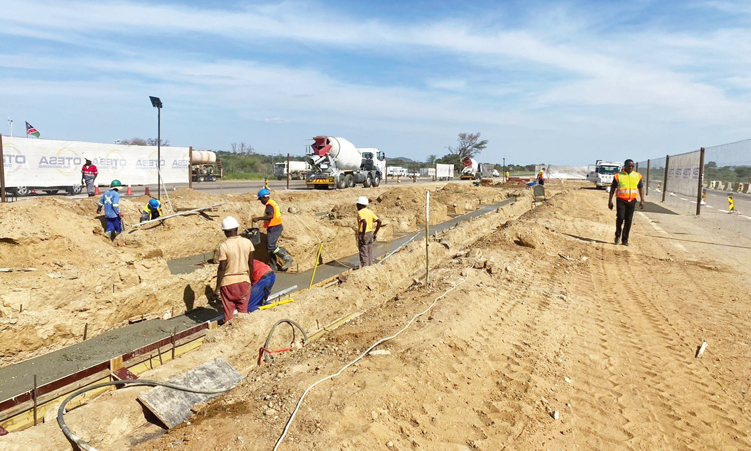DALIAN, China – The United States and Europe yesterday welcomed a compromise deal proposed by developing countries on cutting farm import tariffs, central to a trade deal that could lift tens of millions out of poverty.
US Trade Representative Rob Portman said there had been a “convergence” on the G20 formula, stressing the need for urgency, and hailed it as a basis for negotiation. Trade and agriculture ministers from more than 30 countries meeting in this northern Chinese coastal city hope to produce an outline agreement by the end of the month that would be fleshed out in time for a December meeting of all 148 member states of the World Trade Organisation (WTO) in Hong Kong.But divisions have run deep, especially over the US$279 billion that the 30 richest states provided in support to their farmers last year – money poor countries say robs them of the chance of selling their agricultural produce at a profit in world markets.Put simply, the argument pits the 25-nation European Union, which is reluctant to cut import tariffs unless the United States slashes aid to its farmers, against efficient free-traders such as Australia that want maximum market access for their produce.In an attempt to find middle ground, the Group of 20 developing countries led by Brazil and India has proposed a new formula based on five bands of tariff cuts.The cuts in each tier would be uniform, or “linear” in the jargon.This appeals to the EU, a fierce protector of its farmers, which bridles at US and Australian demands that products protected by the highest tariffs should be subjected to the deepest reductions – “progressive” in trade-speak.”It does provide a formula that we believe is the basis upon which we can now find a middle ground to move forward, so I am encouraged by the attitude (of the ministers) but also the substance,” Portman told reporters.He described the US move as a big concession, adding that it was important progress was made this week.”It (the trade meeting) is too big an opportunity for us to pass up,” he said.EU Agriculture Commissioner Mariann Fischer Boel said the G20 proposal was a good starting point.”But we need some flexibility with the different bands in this approach,” she told reporters.Canada, by contrast, said the G20 initiative could be more ambitious.”We want to see a number of bands and we would like to see a progressive formula within each band that will provide the greatest possibility of increase in access,” Canadian Trade Minister Jim Peterson told reporters.Diplomats said the G20 proposal partly reflected the caution of China and India, which are wary of throwing open their own markets for fear of hurting hundreds of millions of peasants who live off the land.Sun Zhenyu, China’s ambassador to the WTO, said Beijing had already made extensive liberalisation commitments when it joined the Geneva-based trade watchdog in 2001.China’s 700 million farmers were hard-pressed as it was, so the government had limited scope to open up further, Sun said.Because so many poor countries depend on agriculture, liberalising farm trade is critical to the outcome of the Doha round of global trade talks, named after the Qatari capital where they were launched in November 2001.But cuts in industrial tariffs, and easier access to fast-growing services such as telecommunications and finance, are priorities for many rich countries, which are reluctant to make concessions on farming without getting something in return.What was needed at Dalian, said WTO Director-General Supachai Panitchpakdi, was clear political guidance to break the logjam.Originally due for completion by 2004, ministers now aim to complete the round by the end of 2006, but Supachai warned the new deadline would be missed without a greater sense of urgency.-Nampa-ReutersTrade and agriculture ministers from more than 30 countries meeting in this northern Chinese coastal city hope to produce an outline agreement by the end of the month that would be fleshed out in time for a December meeting of all 148 member states of the World Trade Organisation (WTO) in Hong Kong.But divisions have run deep, especially over the US$279 billion that the 30 richest states provided in support to their farmers last year – money poor countries say robs them of the chance of selling their agricultural produce at a profit in world markets.Put simply, the argument pits the 25-nation European Union, which is reluctant to cut import tariffs unless the United States slashes aid to its farmers, against efficient free-traders such as Australia that want maximum market access for their produce.In an attempt to find middle ground, the Group of 20 developing countries led by Brazil and India has proposed a new formula based on five bands of tariff cuts.The cuts in each tier would be uniform, or “linear” in the jargon.This appeals to the EU, a fierce protector of its farmers, which bridles at US and Australian demands that products protected by the highest tariffs should be subjected to the deepest reductions – “progressive” in trade-speak.”It does provide a formula that we believe is the basis upon which we can now find a middle ground to move forward, so I am encouraged by the attitude (of the ministers) but also the substance,” Portman told reporters.He described the US move as a big concession, adding that it was important progress was made this week.”It (the trade meeting) is too big an opportunity for us to pass up,” he said.EU Agriculture Commissioner Mariann Fischer Boel said the G20 proposal was a good starting point.”But we need some flexibility with the different bands in this approach,” she told reporters.Canada, by contrast, said the G20 initiative could be more ambitious.”We want to see a number of bands and we would like to see a progressive formula within each band that will provide the greatest possibility of increase in access,” Canadian Trade Minister Jim Peterson told reporters.Diplomats said the G20 proposal partly reflected the caution of China and India, which are wary of throwing open their own markets for fear of hurting hundreds of millions of peasants who live off the land.Sun Zhenyu, China’s ambassador to the WTO, said Beijing had already made extensive liberalisation commitments when it joined the Geneva-based trade watchdog in 2001.China’s 700 million farmers were hard-pressed as it was, so the government had limited scope to open up further, Sun said.Because so many poor countries depend on agriculture, liberalising farm trade is critical to the outcome of the Doha round of global trade talks, named after the Qatari capital where they were launched in November 2001.But cuts in industrial tariffs, and easier access to fast-growing services such as telecommunications and finance, are priorities for many rich countries, which are reluctant to make concessions on farming without getting something in return.What was needed at Dalian, said WTO Director-General Supachai Panitchpakdi, was clear political guidance to break the logjam.Originally due for completion by 2004, ministers now aim to complete the round by the end of 2006, but Supachai warned the new deadline would be missed without a greater sense of urgency.-Nampa-Reuters
Stay informed with The Namibian – your source for credible journalism. Get in-depth reporting and opinions for
only N$85 a month. Invest in journalism, invest in democracy –
Subscribe Now!










